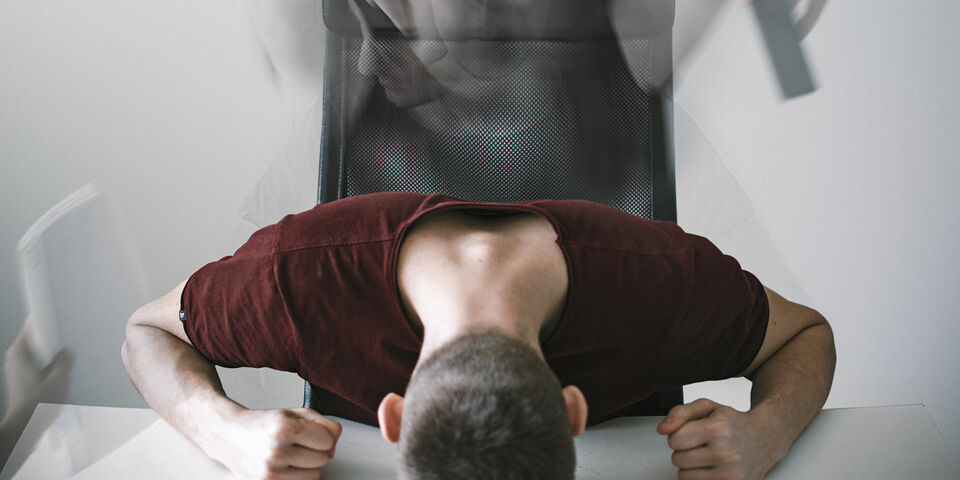More students with mental health problems as a result of the coronavirus crisis
The number of young people with mental health problems remained mostly stable in recent years. But the coronavirus crisis has made life harder for students, according to a new national study. Former professor and researcher Peter van der Velden has expressed concern.
There are differences of opinion as regards the mental health of students. Student organisations continue to caution that stress and burn-outs are on the rise. But national statistics going back ten years show no increase in the number of young people with mental health problems.
However, new research has shown that since the coronavirus started spreading around the world like an oil spill, things have changed. In March of 2019, 24.7% of students suffered from depression and anxiety. A year later, when COVID-19 had gained a firm foothold in our nation, this number suddenly went up by 5%.
Disrupted
This is unsurprising, said lead researcher and health psychologist Peter van der Velden of CentERdata and Tilburg University. “This year has been unpleasant for students in all possible ways. Young people are still developing and suddenly their study programme has been turned upside down, and student life is nothing like it used to be. There are many consequences to the pandemic, and many students are now leading more isolated lives.”
In the last ten years there were no indications of an increase in the number of stressed-out students. Should we sound the alarm? “I’m not saying that all students need to go running to a therapist”, said Van der Velden. “But I would definitely keep an eye on them. Mainly the first-years, for whom new social contacts are especially important. I am very concerned about this group.”
A lot worse
Researchers have asked a large panel of around 4,000 Dutch people questions, including almost 400 students. They compared the results of studies performed in November 2018, March and November 2019, and March of 2020.
The figures show that, in general, the population of the Netherlands is dealing well with the pandemic. The overall share of people with anxiety and depression was just as high prior to the pandemic as during the height of the crisis.
But some groups are clearly doing worse, according to the researchers. This not only applies to students. Job seekers also suffered from more mental health issues in March 2020 and, Van der Velden suspects, the impact on recent graduates would likely be the same.
“Of course it is never fun to be unemployed, but under normal circumstances highly educated people expect things to work out in the end.” Keeping your spirits up is a lot more difficult now.
‘Go and do things’
But according to him, our adaptive capacity should not be underestimated. “Many people will get used to the new situation and regain their balance. This will also apply to the large majority of students. Our study shows that they are able to keep their chins up in the crisis.”
But for those who are finding that a little more difficult, when would be the right time to get help? “Everyone has good days and bad days”, said Van der Velden. “But if you get up in the morning and go to bed at night feeling that your future looks bleak, then you should go to your GP or the student psychologist for help.”
As a preventive measure, he advises students to stay in touch with others as much as possible and “do things together, also with fellow students. You are allowed to meet up, you just have to remember to keep a distance.”
Van der Velden and his colleagues are now completing a follow-up study, in which they are also looking into whether people have become more lonely as a result of all the coronavirus measures.
Postponed
The House of Representatives had urged the National Institute for Public Health and the Environment RIVM to conduct a large-scale initial survey into mental health among students in higher education this year. But this study has been postponed by a year due to the coronavirus crisis.
ESA offers help in case of problems
Do you recognize feelings of stress and/or fear? Look for help. You can contact the student psychologists at TU/e or register for courses offered by Education and Student Affairs (ESA).


Discussion